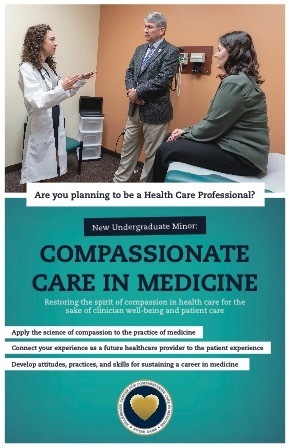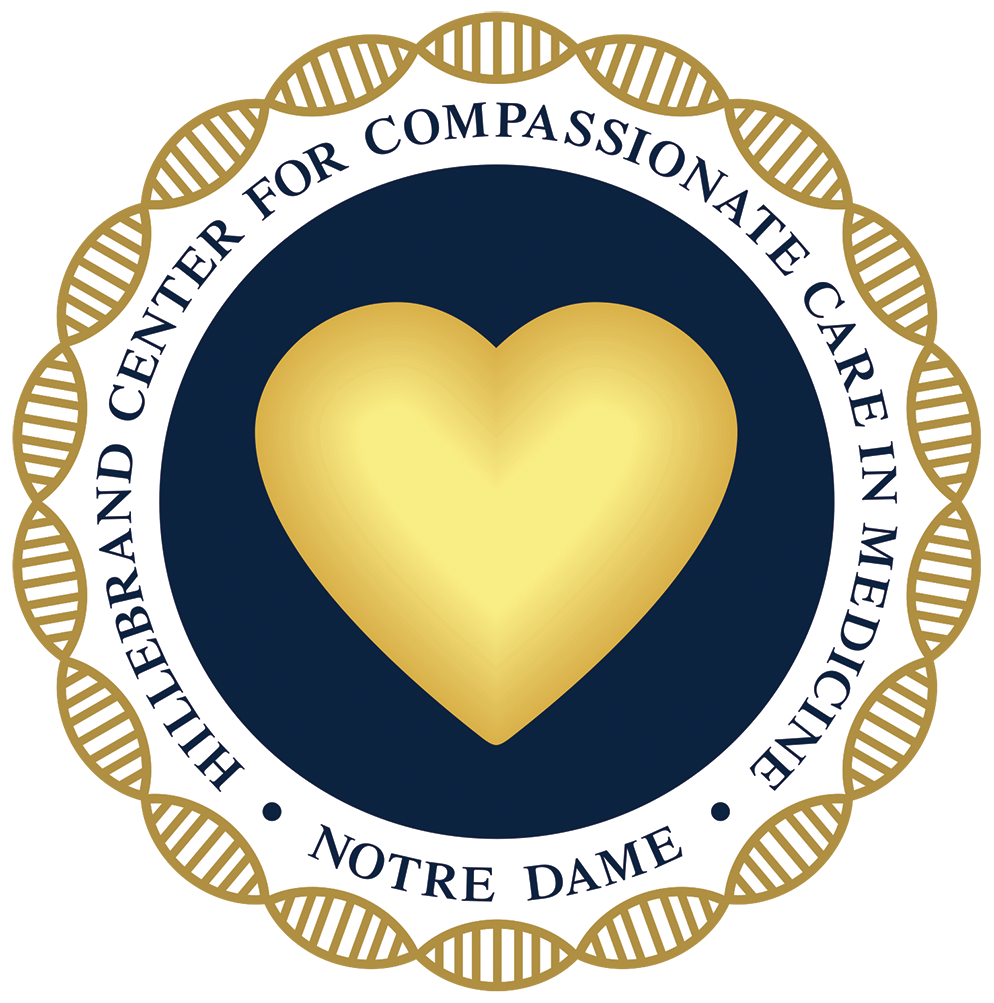Minor in Compassionate Care in Medicine

Overview
The purpose of the Minor in Compassionate Care in Medicine (MCCM) is to provide interdisciplinary training in the science and sustainable practice of compassionate care for future health professionals.
This minor is designed as adjunctive training to the basic science required by health professions schools, by major departments within the College of Science, or by other science-related majors. The minor is rooted in the biology, neuroscience, and psychology of effective and sustainable care for the sick. The practice of compassionate care not only improves patient outcomes, but also sustains the well-being of the healthcare provider, reducing clinician burnout. Through these courses, students will also learn how the nature of clinical care is intrinsically tied to ethics and social justice issues. Students will be required to have both didactic and experiential/active learning, and the minor offers study-abroad opportunities.
Program Requirements (15 credit hours)
Program includes a required gateway course, approved didactic electives, experiential learning or practical skills training courses (e.g., service learning, community-based research; medical counseling skills), and a capstone project.
- Gateway Course (3 credits): SCPP 30405 Compassionate Care in the Medical Professions
This course introduces students to the scientific basis of compassion and the Model of Balanced Compassionate Caring. Although recommended as an introduction, it may be taken at any time.
- Electives (6 credits): Two courses are required from the list of approved electives:
Selected interdisciplinary course electives will deepen the understanding of compassionate care in the areas of biology, neuroscience, psychology, ethics, and policy/social justice in medicine. Other courses may be eligible, but first need approval by the director
- Experiential/Skills-Based Courses (Total of 3 credits required):
Students may satisfy the experiential learning requirements by taking a total of three credit hours of learning through a combination of approved 1-credit seminars, an approved 3-credit SSLP, or an active-learning based 3-credit Medical Counseling Skills course. Experiential learning enhances a student’s exposure and practical skills in responding to suffering in order to gain experience before the capstone project.
- Capstone Project (3 credits):
The Capstone Project can be satisfied through a Directed Readings course (i.e., SCPP 46397-06 Directed Readings), a pre-approved Center for Social Concerns course, or through another experience-based course offered by the department. For all options, students will be required to complete a 20-page paper of his/ her own design, integrating the courses and experiences of the CCIM minor. The Capstone Project must be pre-approved by the Director.
The Capstone Project is designed for students to integrate the scientific understanding of compassion along with some sense of its practical implications in the health professions and within “helping” work in general. It should demonstrate an advanced understanding of the phenomenon of compassion from its biological, neuroscientific, social-cognitive, and social science perspectives; as well as how this is manifested practically. The project should also show how these perspectives are connected, and can be applied when helping others.
The Capstone will need to demonstrate how actual helping dynamics are reflective of underlying scientific mechanisms. The project can focus on a variety of examples of compassionate care in exemplifying how the scientific mechanism of compassion determine the critical dynamics in clinical or other helping work as well as what is required to sustain this type of work on a long-term basis.
To enroll or discuss an interest in the program, please contact Rose Carroll to schedule a consultation with Dominic Vachon, the John G. Sheedy, MD Director of the Hillebrand Center.

